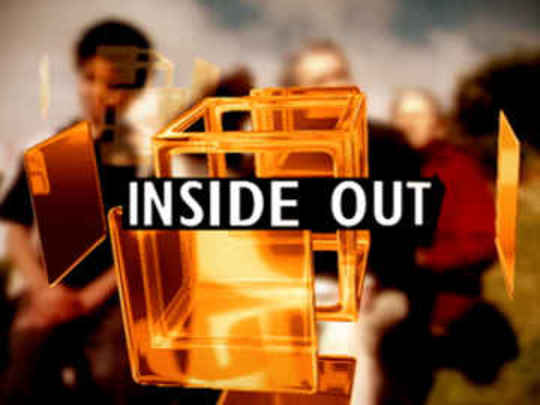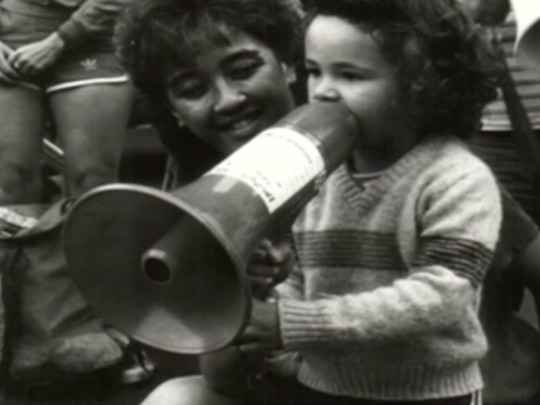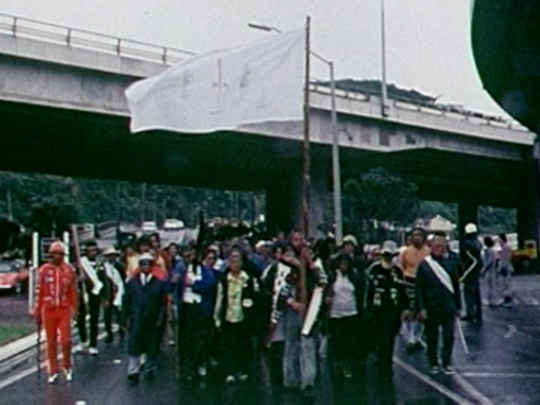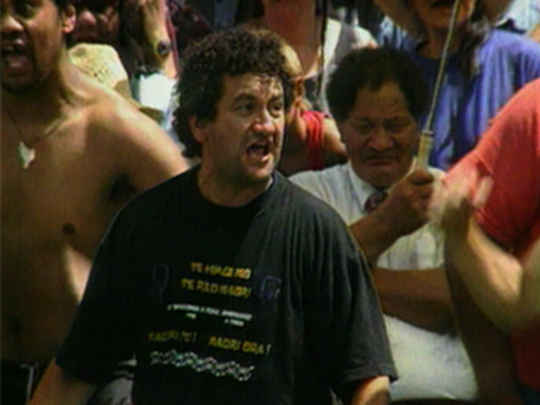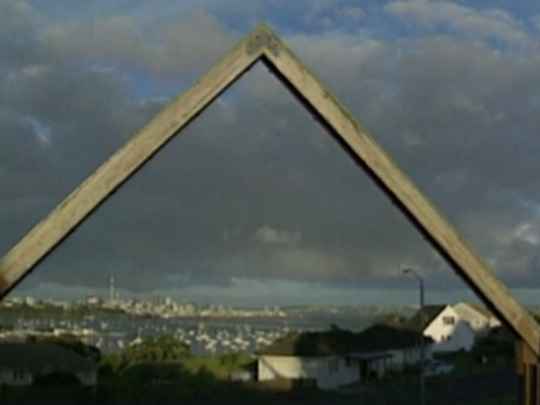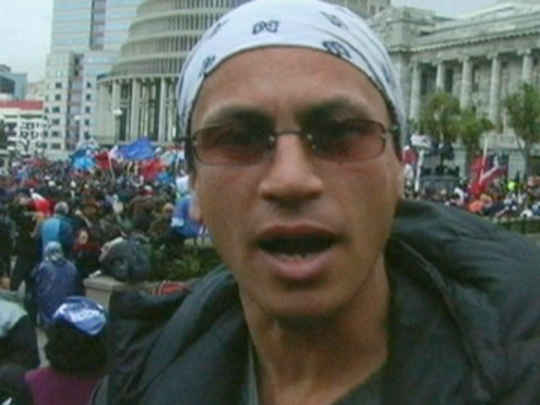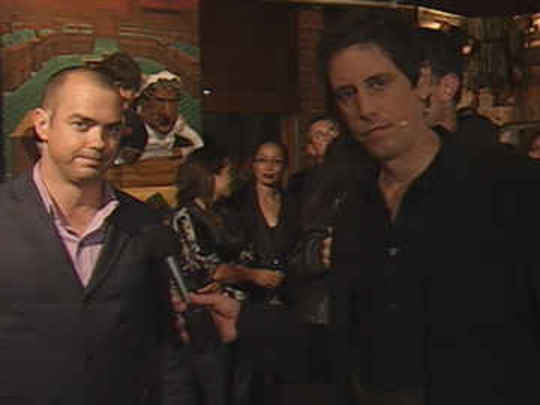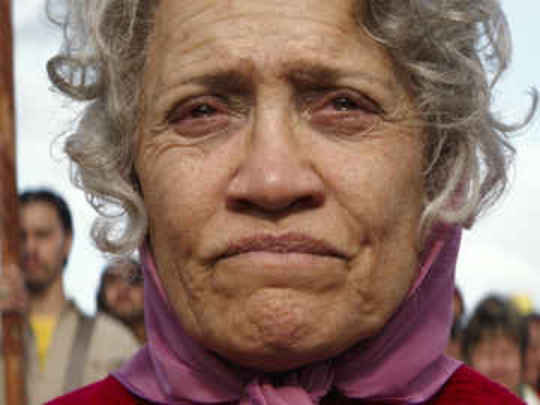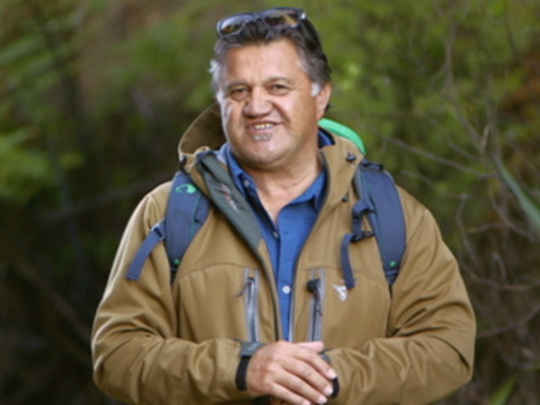No Mauitenei whenua, Ka riro te whenua, ka riro toku mana . . . If I lose my land, if I lose my place in this land, then I lose myself.
– Hīkoi leader Tere Harrison on the significance of land loss, early in this documentary
Most fundamentally, the legislation is a confiscation of things which the treaty says belong to Māori under the full exclusive and undisturbed possession of our whenua. It's a confiscation of things which the common law recognises as part of our aboriginal title, and it's the confiscation of things that under human rights norms are internationally recognised as belonging to indigenous peoples. It's an unjust and unfair piece of legislation.
– Lawyer Moana Jackson on the 2004 Foreshore and Seabed Act, early in this documentary
What it actually does provide for is protection for customary rights. It provides for recognition of ancestral protection. It reaffirms crown ownership, but makes the crown the full legal and beneficial owner, in order to protect public rights and public access.
– Deputy Prime Minister Michael Cullen rebuts criticisms of the 2004 Foreshore and Seabed Act
Our convoy met up with the team who set out to run this flag all the way down to Wellington . . . All kinds of people showed up to be a part of the relay, and there was an awesome feeling that we were creating history.
– Hīkoi leader Te Whenua Harawira on being a part of a group effort
The Foreshore and Seabed Bill relates to the marine area bounded on the landward side by the water line at the mean high spring tide, extending on the seaward side to the 12 nautical mile limits of the territorial sea. It also includes the air and water space above, and the subsoil and bedrock below.
– Narrator Simon Dallow defines exactly what the bill covers
The Foreshore and Seabed legislation prevents Māori from going to the Māori Land Court to assert ownership over areas of the foreshore and seabed, and replaces that opportunity with a regime of ancestral connection orders and customary rights protections.
– Narrator Simon Dallow on the 2004 Foreshore and Seabed Act
It may not stop the legislation but when thirty thousand Māori stand on the street and say 'Enough of your brash attack, enough of your ignorance', and say 'We are here and we are privy to this debate' that has to be the achievement for me.
– Hīkoi leader Tere Harrison on making Māori voices heard
I think out of all my family members I've been the one that's been groomed to take on Mum and Dad's role....there's an expectation for me to be on it, but what has motivated me is you know I feel the same as hundreds of thousands of other people out there, and I don't agree with what's happening.
– Hīkoi leader Te Whenua Harawira on her driving motivation for leading the protest, early in this documentary
Fearing that any Māori ownership of the foreshore and seabed would not be acceptable to the majority of New Zealanders . . . the government announced that it would legislate to secure crown ownership of all areas of the foreshore and seabed not already under private title. In consultation hui around the country, the government's policy was unanimously rejected by Māori and the Waitangi Tribunal . . . the government forged ahead with drafting legislation. In late 2003 Ngāti Kahungunu began discussing protest action in the form of a hīkoi. By April 2004 other Iwi had committed support. The result was the largest unified mobilisation of Māori in history.
– From the press release for this documentary, 21 July 2004
In 2009 the National-led government, as part of a November 2008 confidence-and-supply agreement with the Māori Party, undertook a review of the Foreshore and Seabed Act 2004 . . . the Marine and Coastal Area (Takutai Moana) Act 2011 was passed, repealing the 2004 act. The new law replaced Crown ownership of the foreshore and seabed with a ‘no ownership’ regime, and restored the right of iwi to seek customary rights and title in court.
– Writer Mark Hickford on the end of the Foreshore and Seabed Act, Te Ara website, 1 January 2015

